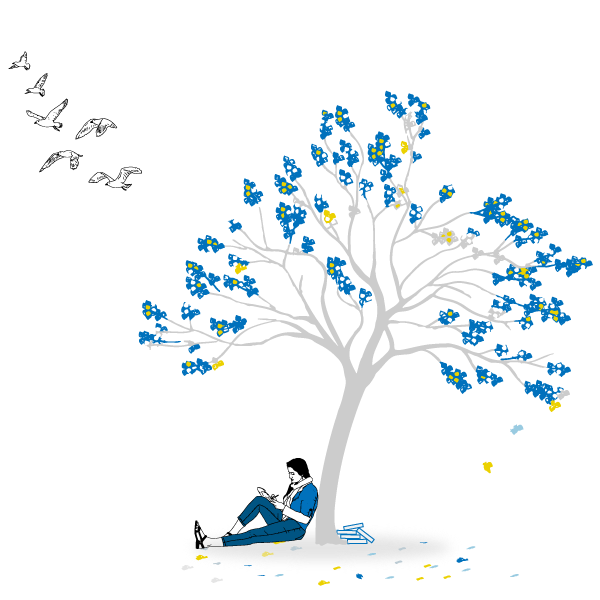Pin Drop
I don’t remember the precise name of the story by Joanna Campbell that led me to her work, but I remember where I was sitting, I remember I immediately wanted to write her a note about it, I remember it was a flash fiction story, I remember the story distinctly. It is written from a child’s perspective and it involves bullying. When I can recall the exact title, I will update this post. It was a prize-winning story and now there are so many contests and prizes (and she has won so many) that I am not sure in which competition it belonged.
But it matters not. I highly recommend buying her collection of prize-winning stories, When Planets Slip Their Tracks, where you are transported into all the unfamiliar worlds that feel eerily next door. She is a supremely original and gifted writer. It goes without saying, I not only enjoy her work, I am inspired by her work. Whenever I feel I am not making progress fast enough, I am reminded of some things she has generously shared with me, specifically, that some of her best stories have taken years. Years.
So when her story “Brad’s Rooster Food” was shortlisted for the Pin Drop Short Story Award in 2017, I couldn’t wait to read it. It was then included in the Pin Drop anthology, A Short Affair. No small feat. That’s the ONLY reason I ordered the anthology–to read her story–which took forever to arrive (maybe it wasn’t available in the U.S. then, it was last summer and it was a crazy summer). The story didn’t disappoint. I have never read anything like it. It’s about roosters! It’s about loneliness! It’s about life. I read it several times, in fact, because I couldn’t believe how she had pulled so many tenses (past, present, and future!) in such a short space. And then, I just let the anthology sit near our couch, reading one story every other week/month when not reading/ writing/ traveling/ teaching/ planning/ watching/ sleeping / something else. The stories in the anthology are accompanied by work from artists in the Royal Academy of Arts. “Brad’s Rooster Food” is also my favorite illustration in there by artist Jessy Jetpacks. I await permission to post image of that illustration here. Meanwhile, you can check out the artist’s other work.

Fast forward (or rewind–my sense of time as it applies to reading has become very skewed because I am always reading it seems), I also wanted to check out the stories in The O. Henry Prize Stories anthology (2017). I have tired engaging with this anthology in 2008 as well. Primarily because I teach stories by O. Henry and I love his stories very much. So, yes, it’s the name. And it’s prestigious. And, I don’t know how else to say this, I want to finish a single story in a single setting so badly and IT NEVER HAPPENS.
I always find myself distracted, abandoning the stories for a cup of tea/coffee, using the bathroom, combing my hair, removing nail polish, checking the mail, texting my sister, calling my mom, asking my sister if my Majesty, niece, is awake for FaceTime, asking Jamie if he wants to go out for lunch or find a movie, or going on the web to read teacher’s blogs for ideas. And then I feel guilty for abandoning the short story. It’s a huge deal to be included in The O. Henry anthology. I even printed out the essay by the 2018 series editor, titled, “How to Write Short Stories (Hint: It’s Not That Simple)” published on September 11, 2018. It’s a profound insight on the process of what makes a great story.
And yet.
Of course the craft in the O. Henry stories is impressive. It’s just that I have read the same story for the last ten years.
The two exceptions in the 2017 anthology for me are as follows. “Something for a Young Woman” by Genevieve Plunkett and “A Cruelty” by Kevin Barry. Genevieve Plunkett is a quiet writer whose sentence-level writing has impressed me from the very first time I read her story a few years ago. She is also a slow (self-described) writer and perhaps that’s why her work stands out on the sentence-level. “A Cruelty” by Kevin Barry has the gift that all Irish writers offer their readers: story! A story worth sharing on. It’s a story you call and tell someone else about it, as if it happened to someone you know. It’s brilliant.
Yesterday night I finished another story in A Short Affair anthology. This one was by new-to-me writer, Nikesh Shukla. It’s about a young Indian millennial woman whose father voted for President Trump and hence she hasn’t spoken to him. She is trying to find her place in this hypheneated life of hers and she discovers a hole-in-the-wall food place called “Didi’s” in Jackson Heights, Queens. We all know a “Didi’s” in Jackson Heights or Manhattan.
My place was called Haandi in Manhattan.
It’s a remarkable story because it defies stereotypical stories of and by brown people. It successfully bypasses tropes I read (and hence don’t care to read) in works by South Asian writers who are still trying to emulate Jhumpa Lahiri. It doesn’t have a political undertone and yet like all good stories, of course it’s about the quagmire of politics we find ourselves in. The story also mentions a specialty rice food called “khichdi” (don’t ask me how long it took to type that word–autocorrect be damned!) and offers NO explanation for what this food means to an entire community. You come to that conclusion as a reader because the story does a great job of subtly making sure you do. It doesn’t explain that word or food for a reader who is likely not familiar with that food or may only know Indian food that is found via Yelp. That lack of explanatory tone in the narrative brought tears to my eyes.
Khichdi is just the best. It’s not a specialty dish really. It’s quite a humble one. It’s how Anton Ego feels about eating ratatouille in one of my favorite films, Ratatouille. Here’s a clip.
Anyway, when I finished the story, I wiped a tear and expressed to Jamie everything I was feeling upon reading it (which is about my own writing and I will save for another post).
But what stood out for me was that every story in the Pin Drop anthology felt like an anchor of humanity was dropped deep inside my psyche. The stories in there have become part of my DNA now.
The O. Henry stories are supremely well-crafted and need to be applauded as such. It’s a high achievement for any writer to have his or her work included in there.
But if this reader was going to point at the main difference it would as such:
The O. Henry anthology stories are accomplished, skilled, and of highest craftsmanship. The Pin Drop stories are Art. (The exception being Kevin Barry’s story in the 2017 anthology but it’s Kevin Barry–it’s going to be that good no matter where it was).
I want stories to slow us down and talk to one another, make room for a conversation with oneself, change the way we thought about another, make us wonder how someone’s else’s “different” is actually our own “same”. And that’s what the stories in the Pin Drop anthology offer. That’s what Art offers. And more than anything else, I want a story that I want to finish in one go, a story for which I abandon everything else.


